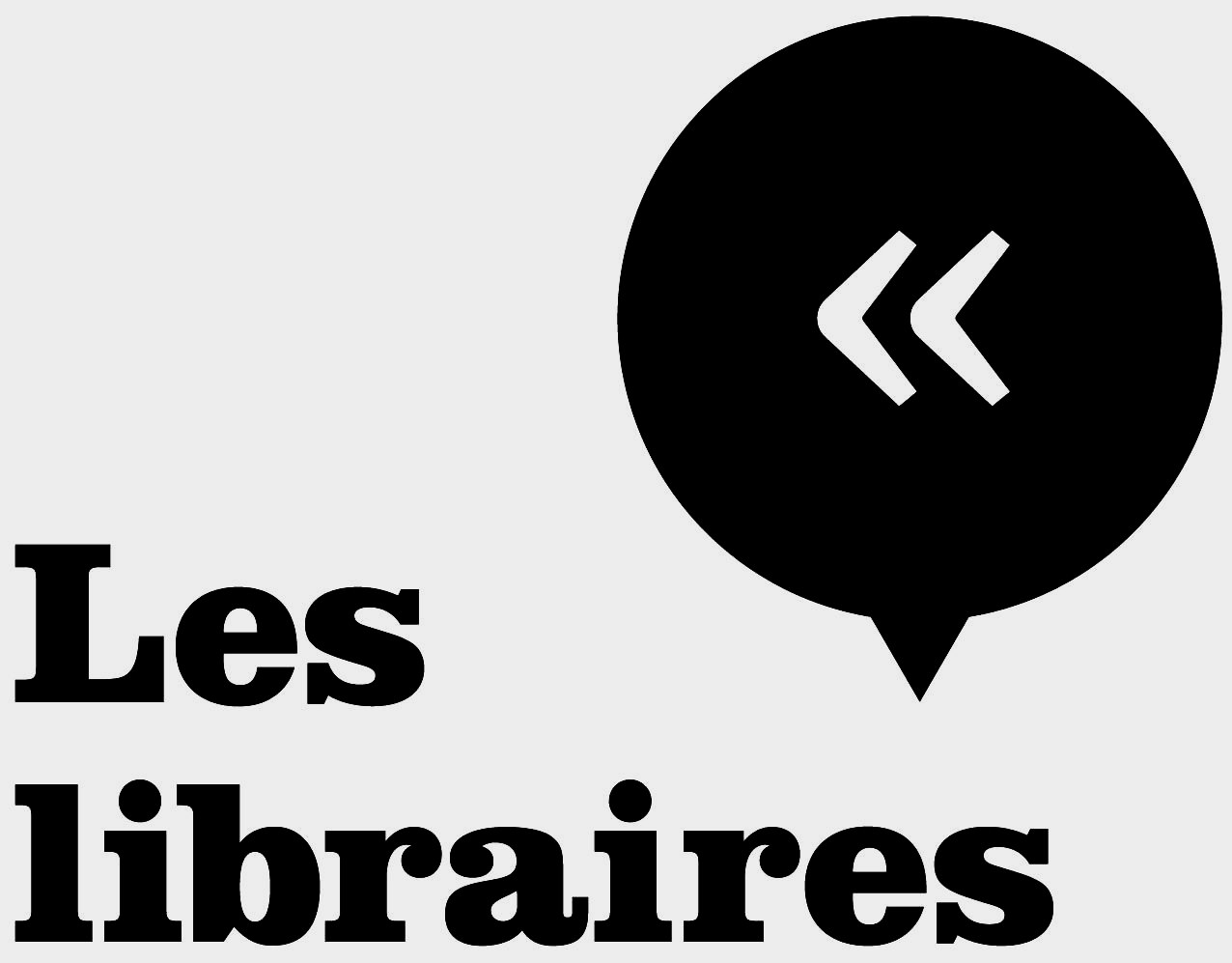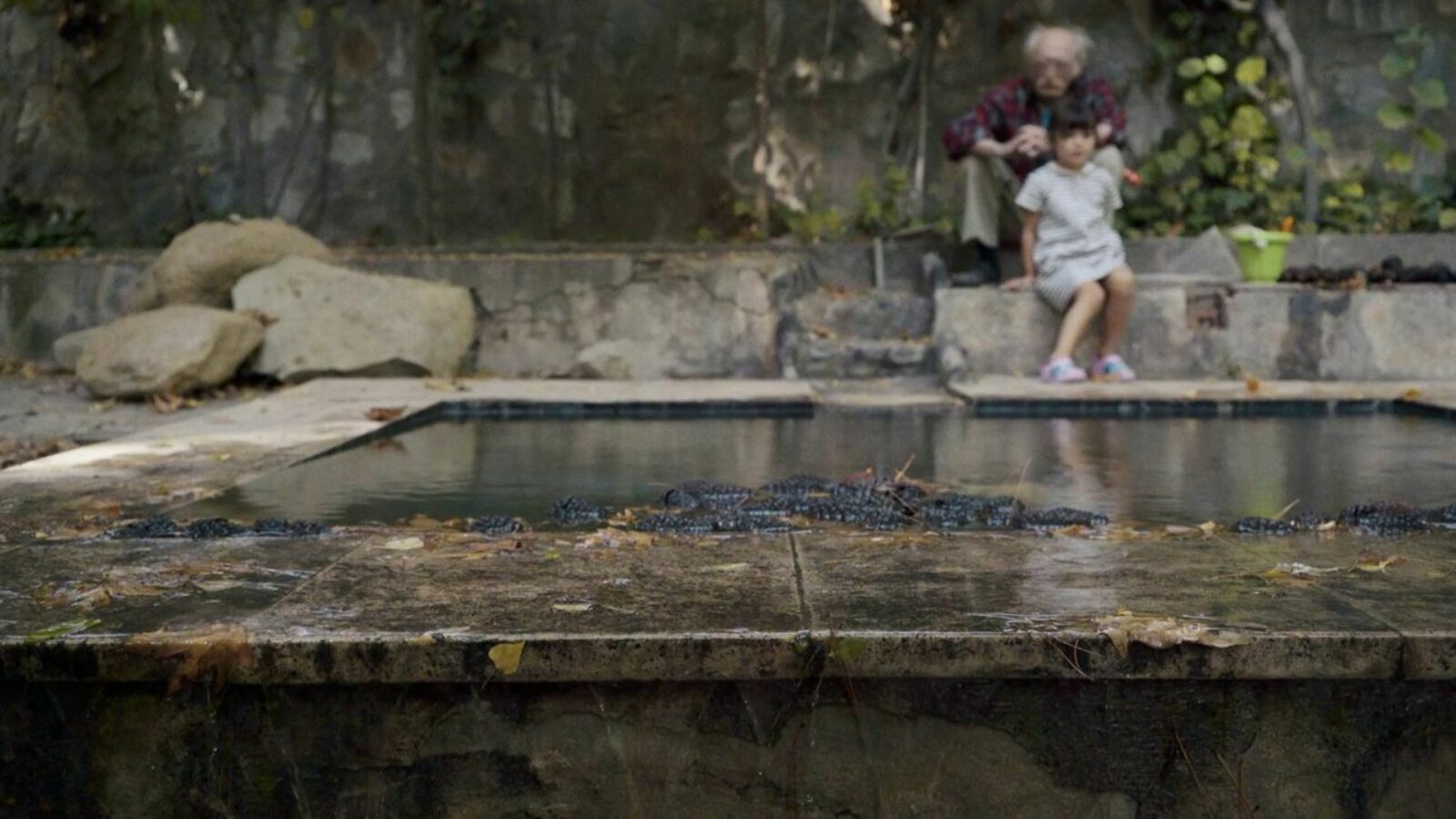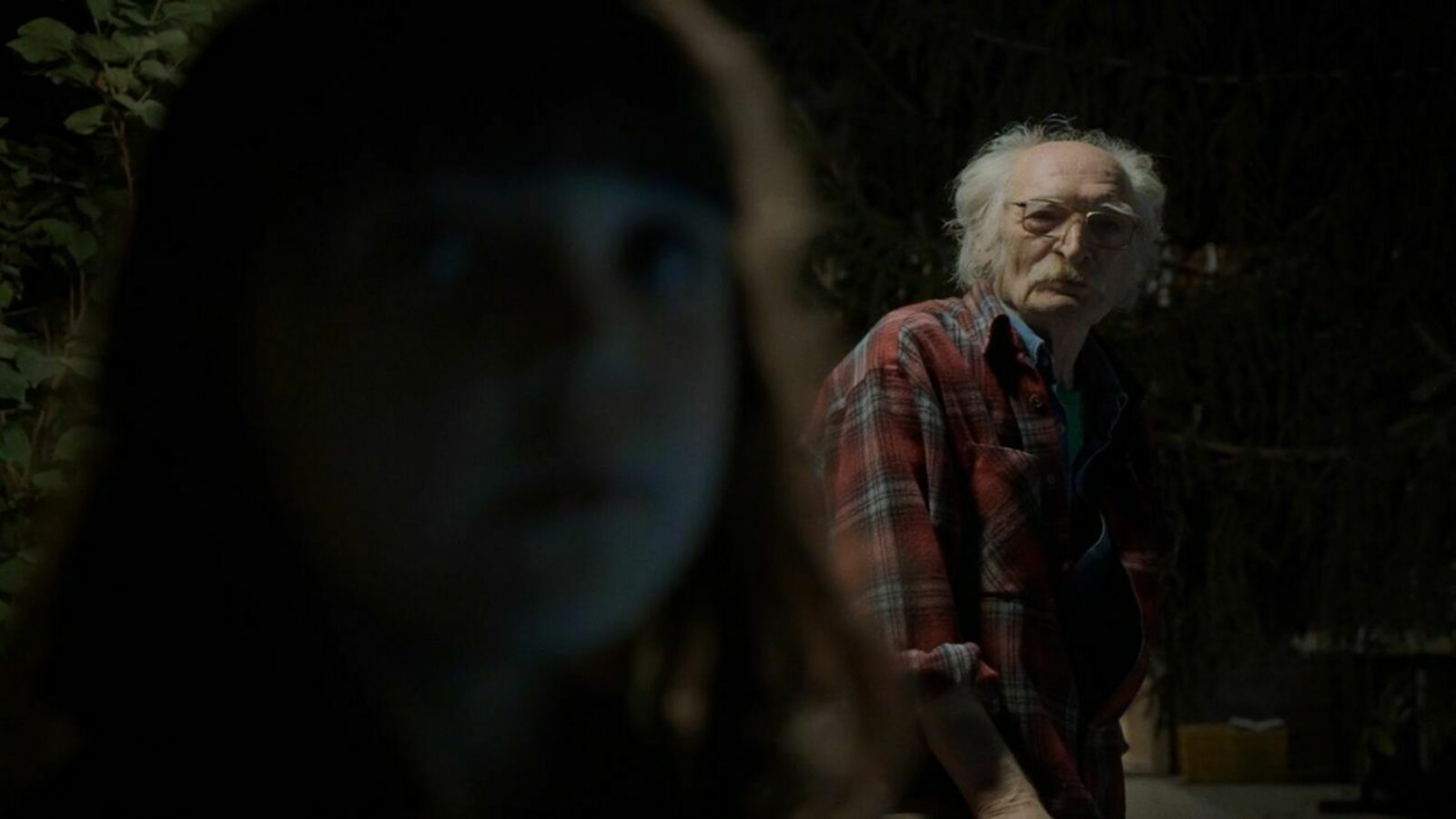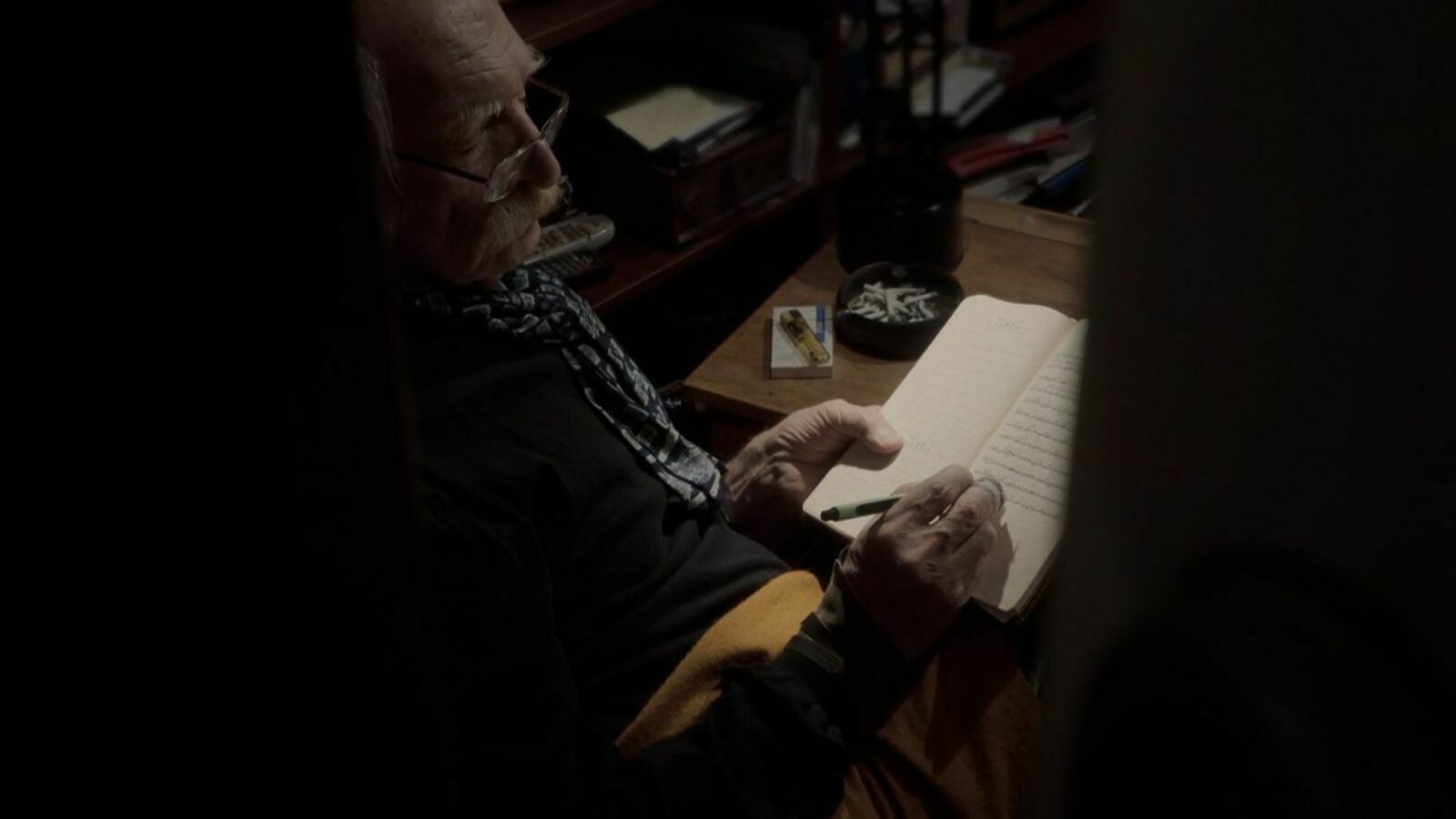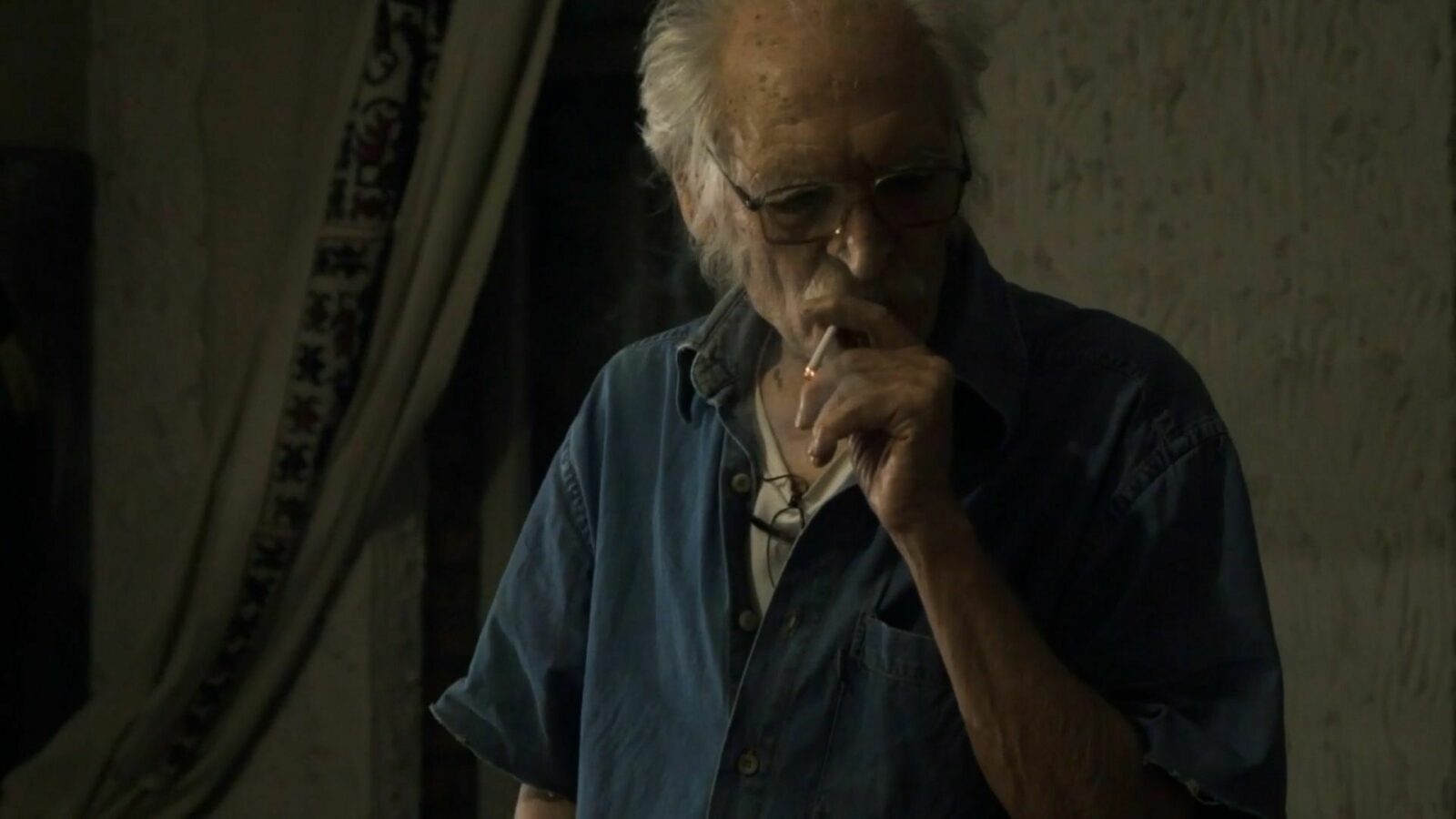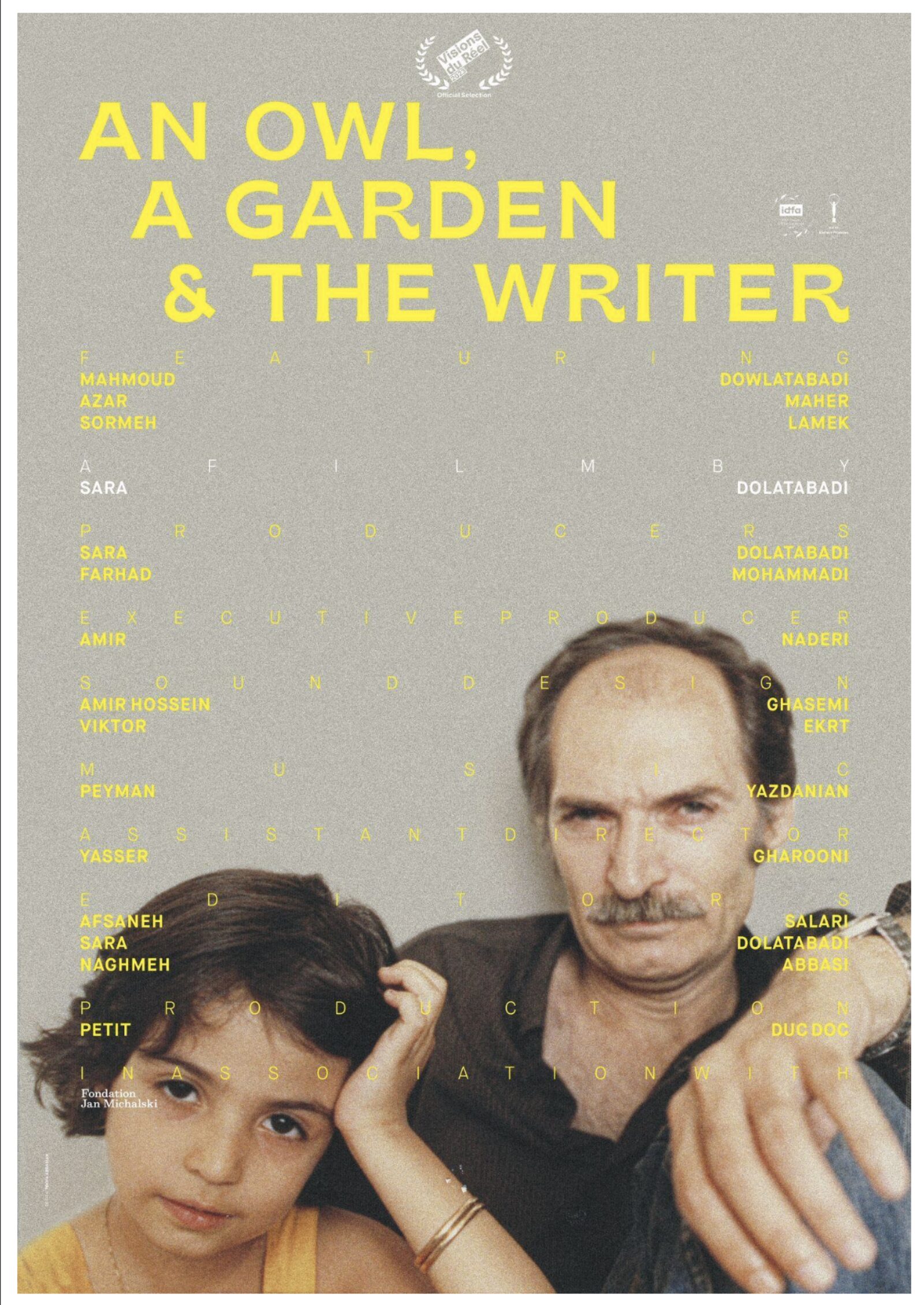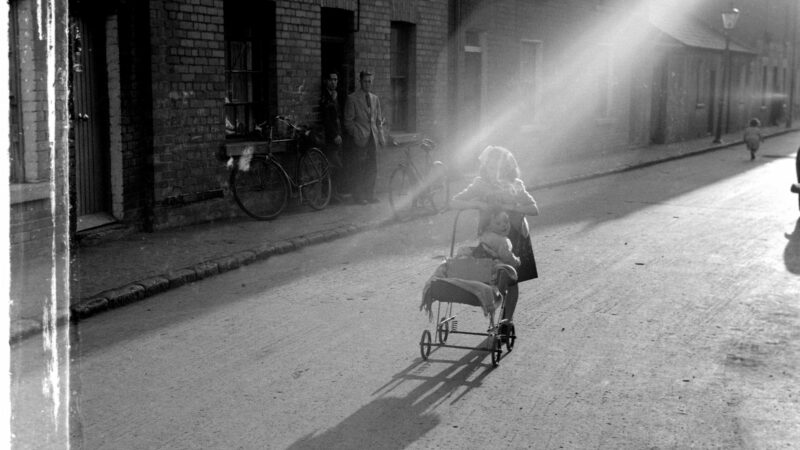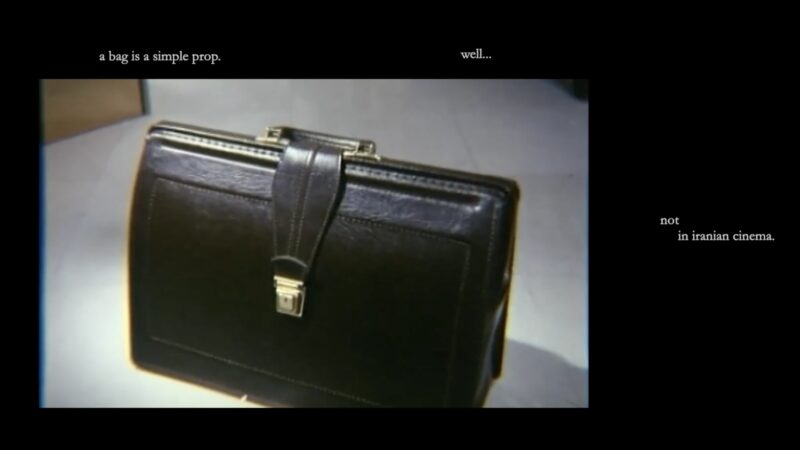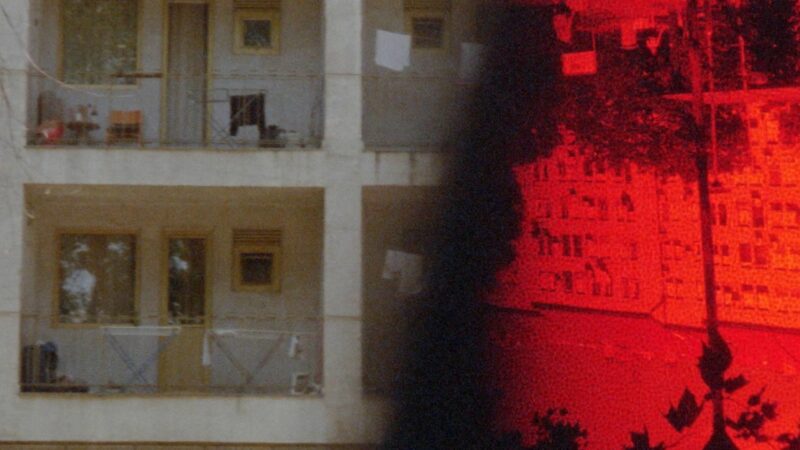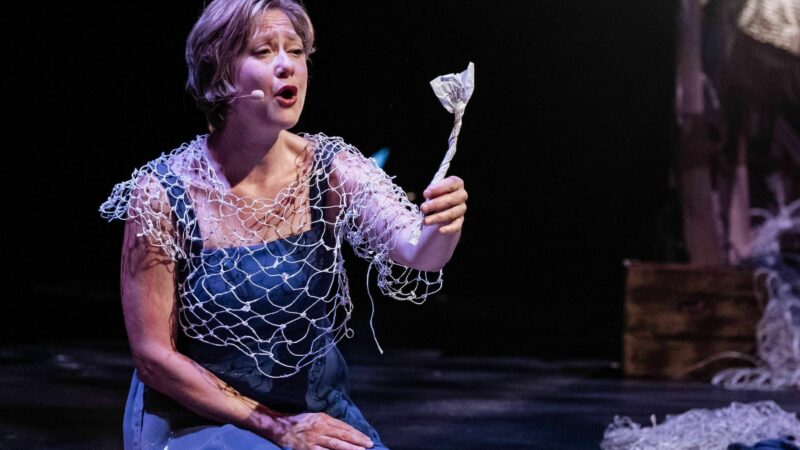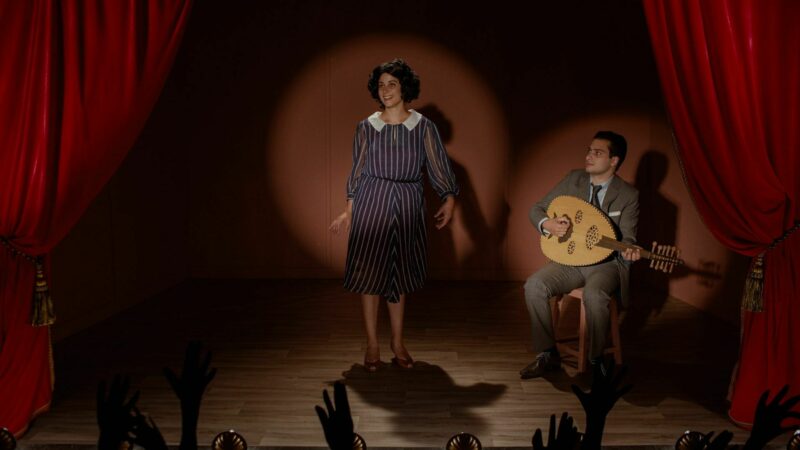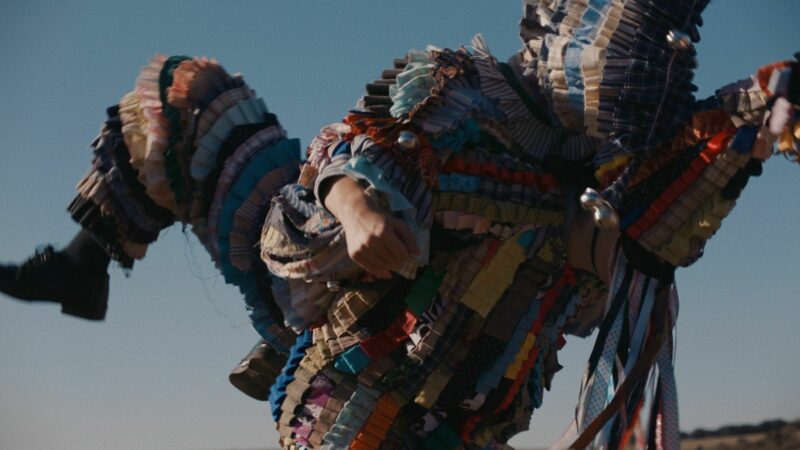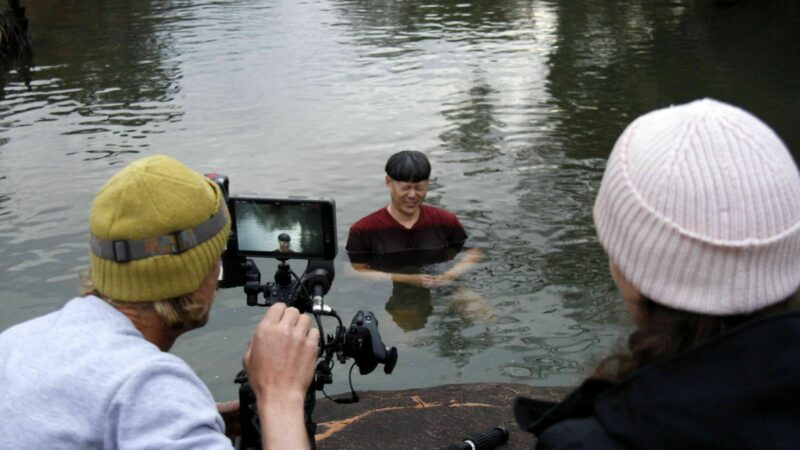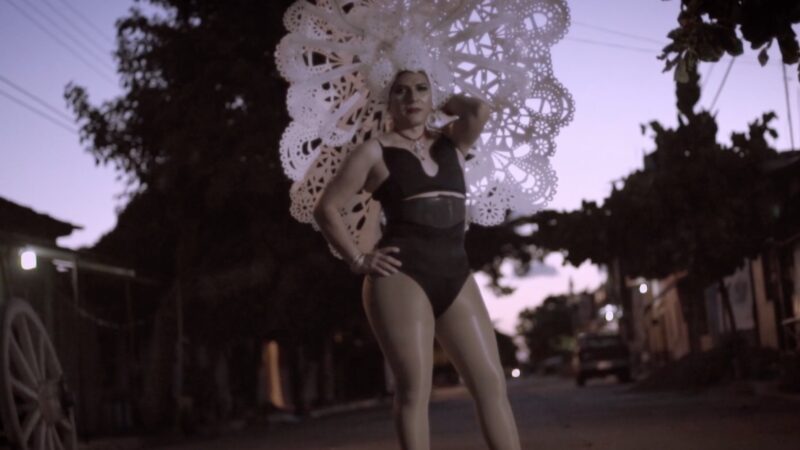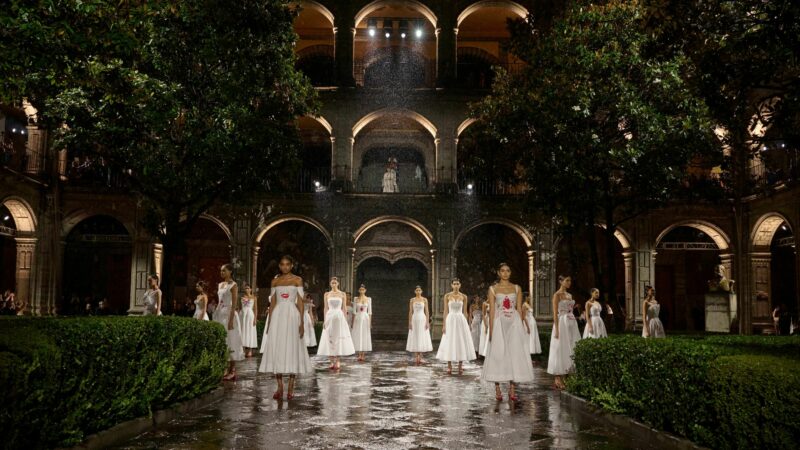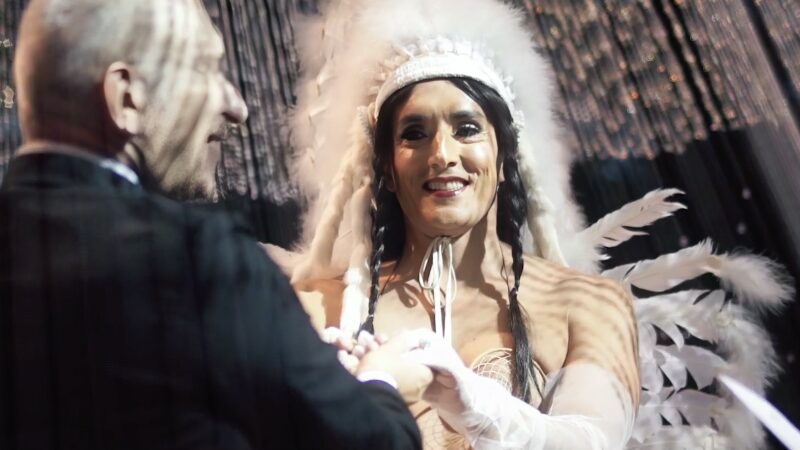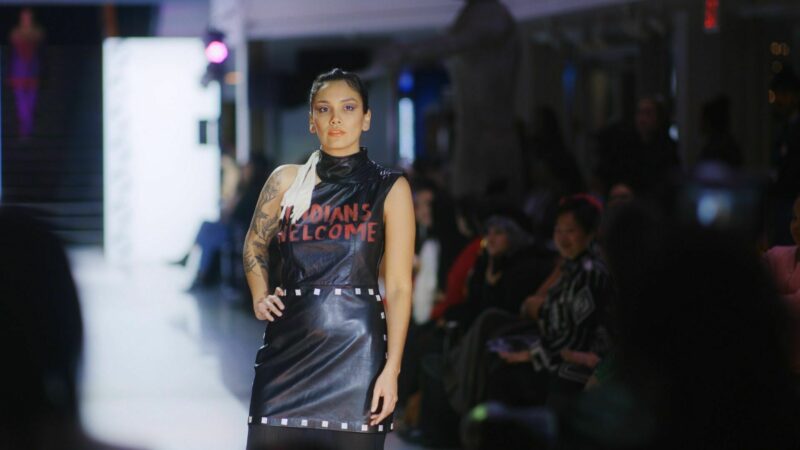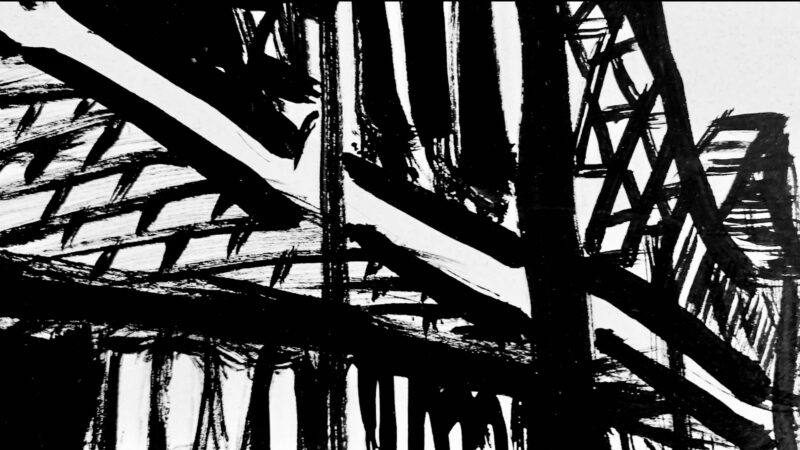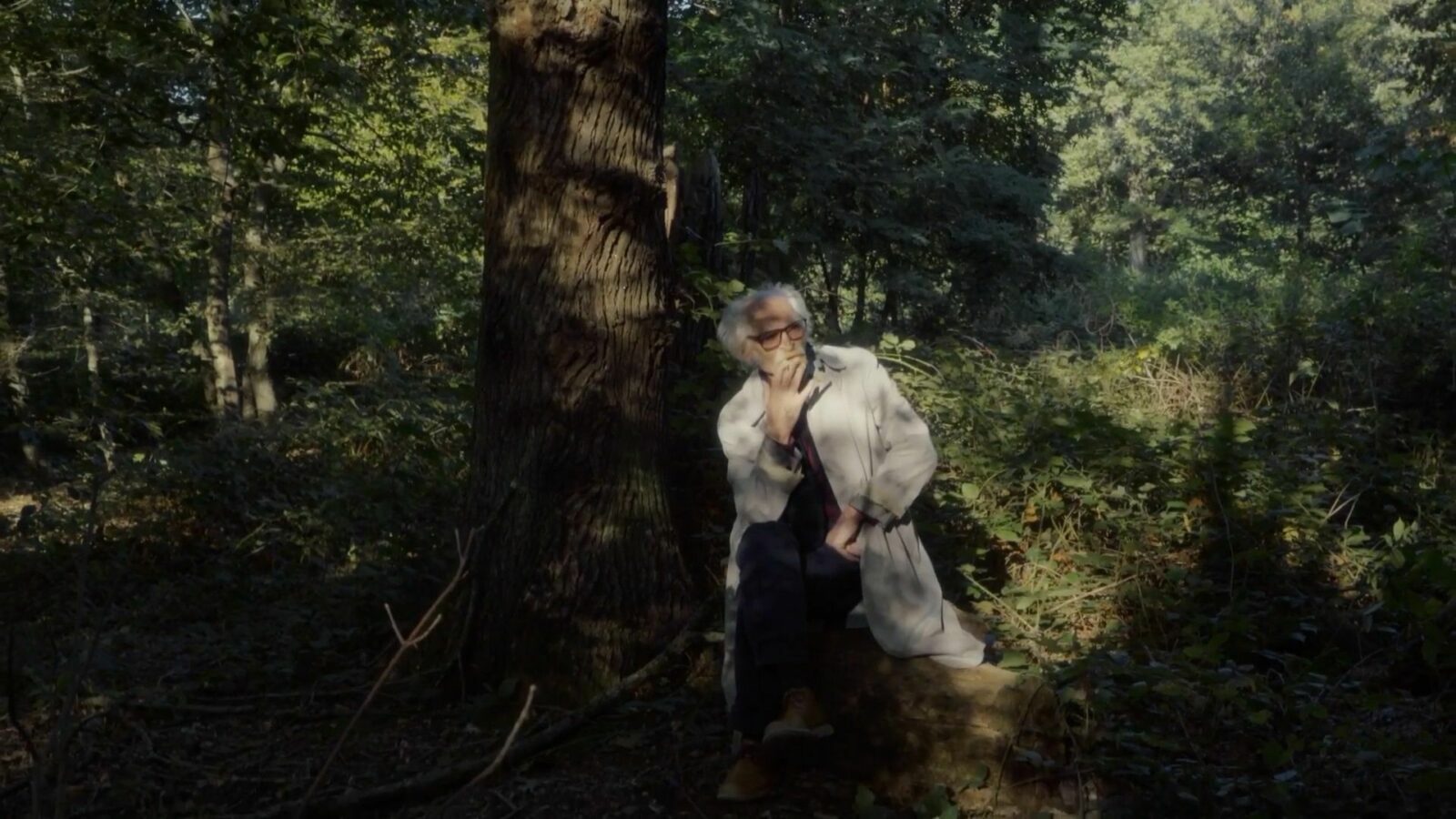
 Trailer
Trailer
Best Portrait Prize, FIFA 2024
Mahmoud Dowlatabadi is one of the most prolific Iranian novelists of our time. An Owl, a Garden and the Writer reveals his personal and political history through the eyes of his daughter Sara. Presented at Visions du Réel, the Centre Pompidou’s Extra Festival and the Busan Festival, this intimate tale interweaves family memories and literature, against a backdrop of repression, artistic resistance and intergenerational transmission.
In presence of the producer Farhad Mohammadi on March 23, 2024 at Concordia University — J.A. de Sève in Montréal
About us Sara Dolatabadi :
What was your motivation to make this film?
I’ve been watching family members leave Iran, willfully or by force. These memories continuously influenced my practice as a visual artist and filmmaker, which I see as a meeting point between the microcosm of the personal and the macrocosm of the political. In my late twenties, I moved to Tokyo, and then to Paris and New York. My work is heavily influenced by this nomadic existence, tracing my life between different cities and different people.
Living far from my family also led me to the point of urgency to start this project. As time was passing, I felt it more and more necessary not only to capture the moment but also, for the sake of history, to record the story of my father’s life with his voice. In 2015, I started to excavate memories of my own life in Tehran. I began with paintings and drawings of my parents’ apartment. This ultimately led to the production of an artist book, Prison & Memory (2016), which explored oral histories related to Ghasr Prison in Tehran, where my father had been held for 2 years by the Shah’s police. This eventually led to the video I presented as my final project for the MFA final exhibition, and ‘An Owl, a Garden and the Writer’ is the continuation of that project with more commitment.
As an artist, I have always wondered about my dad’s creative universe. This project opened the door to that universe and helped provide another dimension to our relationship which also helped me grow as an artist. Talking about the project with him and running ideas by him was a very joyful experience.
Have you always known you wanted to make a film about your father?
From when I was little, I was aware that Mahmoud is a great writer, and famous. This didn’t impact our relationship as daughter and father as such, but it did force me to see him through the admiring eyes of others. As a result, he became two different people for me: Mahmoud the beloved father and Mahmoud the great writer whom I don’t have the same access to. This idea of wanting to know more about his other reality, or his imaginary life, has been with me for a long time. Getting into someone’s imagination is impossible, but imagining his creative universe was a joyful process. This film is my personal quest to get to know him better, an attempt to get closer to his imaginary world, on my terms.
Mahmoud metaphorically documented his parents’ and his own life in semi-autobiographical novels, which are also a narration of a moment of Iranian history. In his books, he begins to confront his relationship with his parents and explores the shackles that his upbringing has imposed upon him. I use this approach as a springboard for my film and take the liberty to challenge Mahmoud‚ and my own perception of our family dynamic and the key events in our lives. Now Mahmoud is a source of inspiration to me but that wasn’t always the case. When I was younger, I wanted to keep my distance from him in order to find and establish my own identity. But now, I am increasingly viewing him as a gift and am grateful to have him in my life, and that I can better understand him and relate to him.
When I was 16, my mom told me that if I wanted to know more about my background or my family history, I should read my father’s book Bygone Days of the Elderly. I read it a couple of years later and became very attached to it. Mahmoud describes the book as the closest to his life experience and says that he “has his own shadow” in it. For me, it is the surrealistic autobiography of him. Eventually it became a source of inspiration for me to make the film. It is the same book that I have narrated passages from in the film as well.
How important is language to you?
Becoming a mother and raising a child in a nomadic life forced me to think about death and especially the disappearance of my parents. I began to fear the day when my language, Farsi, would fade in my daughter’s life and be followed by alienation towards my family and my cultural background. What if, over time, her only language became her father’s, French? This anguish of the disappearance of my language as well as the fear of the disappearance of my father, reinforced my will to complete a documentary film about him.
I am a visual artist, and the language of my story telling is more visual than verbal. I am interested in all the spaces in between the words. There are plenty of words in the film but there are plenty of other things too, the visual language is present in the film.
The garden plays a big part in the film, it is even in the title. Can you elaborate on the function of the garden, both in Mahmoud’s life and in the film?
Mahmoud is from a small village, and he began working on a farm from a young age so spending time gardening is an important part of his life and spends about half of his time there. I chose it as the main location for the film as it symbolizes a place full of life and safety, even though this may be only a false sense of security. Also, being in a secluded location helped create distance from Mahmoud and his fame. It allowed me to create an intimate space where the audience can be a silent observer of our daily routines and discussions.
The garden ultimately serves as the intersection of three different worlds: The domestic realm, accompanied by mundane events; the interior writing world of Mahmoud; and the immediate external world in the form of the repressive regime. To me, the most interesting world is that of Mahmoud’s writing and there is an inevitability of talking about and showing the other two against the backdrop of this one.
While revisiting my childhood and getting insight into my father’s creative writing universe was the starting point for my idea for the film, the trips I did to Iran to shoot the movie also helped establish a sense of intimacy between my parents and my daughter. This then again also served the purpose of preserving my language with her as well. That sense of intimacy then helped evolve my concept of the film to naturally incorporate their relationship in the film. That intimacy paired with household chores helped create the domestic realm. And the excavation of some of the memories about key events, such as Mahmoud’s imprisonment, in our lives incorporates the reminders that while domestic life seems safe, mundane and ordinary, in some ways it might be an illusion, considering the state of the external world.
Mahmoud Dowlatabadi is one of the most prolific Iranian novelists of our time. An Owl, a Garden and the Writer reveals his personal and political history through the eyes of his daughter Sara. Presented at Visions du Réel, the Centre Pompidou’s Extra Festival and the Busan Festival, this intimate tale interweaves family memories and literature, against a backdrop of repression, artistic resistance and intergenerational transmission.
In presence of the producer Farhad Mohammadi on March 23, 2024 at Concordia University — J.A. de Sève in Montréal
About us Sara Dolatabadi :
What was your motivation to make this film?
I’ve been watching family members leave Iran, willfully or by force. These memories continuously influenced my practice as a visual artist and filmmaker, which I see as a meeting point between the microcosm of the personal and the macrocosm of the political. In my late twenties, I moved to Tokyo, and then to Paris and New York. My work is heavily influenced by this nomadic existence, tracing my life between different cities and different people.
Living far from my family also led me to the point of urgency to start this project. As time was passing, I felt it more and more necessary not only to capture the moment but also, for the sake of history, to record the story of my father’s life with his voice. In 2015, I started to excavate memories of my own life in Tehran. I began with paintings and drawings of my parents’ apartment. This ultimately led to the production of an artist book, Prison & Memory (2016), which explored oral histories related to Ghasr Prison in Tehran, where my father had been held for 2 years by the Shah’s police. This eventually led to the video I presented as my final project for the MFA final exhibition, and ‘An Owl, a Garden and the Writer’ is the continuation of that project with more commitment.
As an artist, I have always wondered about my dad’s creative universe. This project opened the door to that universe and helped provide another dimension to our relationship which also helped me grow as an artist. Talking about the project with him and running ideas by him was a very joyful experience.
Have you always known you wanted to make a film about your father?
From when I was little, I was aware that Mahmoud is a great writer, and famous. This didn’t impact our relationship as daughter and father as such, but it did force me to see him through the admiring eyes of others. As a result, he became two different people for me: Mahmoud the beloved father and Mahmoud the great writer whom I don’t have the same access to. This idea of wanting to know more about his other reality, or his imaginary life, has been with me for a long time. Getting into someone’s imagination is impossible, but imagining his creative universe was a joyful process. This film is my personal quest to get to know him better, an attempt to get closer to his imaginary world, on my terms.
Mahmoud metaphorically documented his parents’ and his own life in semi-autobiographical novels, which are also a narration of a moment of Iranian history. In his books, he begins to confront his relationship with his parents and explores the shackles that his upbringing has imposed upon him. I use this approach as a springboard for my film and take the liberty to challenge Mahmoud‚ and my own perception of our family dynamic and the key events in our lives. Now Mahmoud is a source of inspiration to me but that wasn’t always the case. When I was younger, I wanted to keep my distance from him in order to find and establish my own identity. But now, I am increasingly viewing him as a gift and am grateful to have him in my life, and that I can better understand him and relate to him.
When I was 16, my mom told me that if I wanted to know more about my background or my family history, I should read my father’s book Bygone Days of the Elderly. I read it a couple of years later and became very attached to it. Mahmoud describes the book as the closest to his life experience and says that he “has his own shadow” in it. For me, it is the surrealistic autobiography of him. Eventually it became a source of inspiration for me to make the film. It is the same book that I have narrated passages from in the film as well.
How important is language to you?
Becoming a mother and raising a child in a nomadic life forced me to think about death and especially the disappearance of my parents. I began to fear the day when my language, Farsi, would fade in my daughter’s life and be followed by alienation towards my family and my cultural background. What if, over time, her only language became her father’s, French? This anguish of the disappearance of my language as well as the fear of the disappearance of my father, reinforced my will to complete a documentary film about him.
I am a visual artist, and the language of my story telling is more visual than verbal. I am interested in all the spaces in between the words. There are plenty of words in the film but there are plenty of other things too, the visual language is present in the film.
The garden plays a big part in the film, it is even in the title. Can you elaborate on the function of the garden, both in Mahmoud’s life and in the film?
Mahmoud is from a small village, and he began working on a farm from a young age so spending time gardening is an important part of his life and spends about half of his time there. I chose it as the main location for the film as it symbolizes a place full of life and safety, even though this may be only a false sense of security. Also, being in a secluded location helped create distance from Mahmoud and his fame. It allowed me to create an intimate space where the audience can be a silent observer of our daily routines and discussions.
The garden ultimately serves as the intersection of three different worlds: The domestic realm, accompanied by mundane events; the interior writing world of Mahmoud; and the immediate external world in the form of the repressive regime. To me, the most interesting world is that of Mahmoud’s writing and there is an inevitability of talking about and showing the other two against the backdrop of this one.
While revisiting my childhood and getting insight into my father’s creative writing universe was the starting point for my idea for the film, the trips I did to Iran to shoot the movie also helped establish a sense of intimacy between my parents and my daughter. This then again also served the purpose of preserving my language with her as well. That sense of intimacy then helped evolve my concept of the film to naturally incorporate their relationship in the film. That intimacy paired with household chores helped create the domestic realm. And the excavation of some of the memories about key events, such as Mahmoud’s imprisonment, in our lives incorporates the reminders that while domestic life seems safe, mundane and ordinary, in some ways it might be an illusion, considering the state of the external world.
Other festivals:
Visions du Réel, Burning Lights Competition, Switzerland (2023)
Centre Pompidou Extra Festival, France (2023)
Busan IFF, South Korea (2023)
Doclisboa, Winner of Rights & Freedom Award, Portugal (2023)
Visions du Réel, Burning Lights Competition, Switzerland (2023)
Centre Pompidou Extra Festival, France (2023)
Busan IFF, South Korea (2023)
Doclisboa, Winner of Rights & Freedom Award, Portugal (2023)
| Director | Sara Dolatabadi, Sara Dolatabadi |
| Assistant director | Yasser Gharooni |
| Production | Farhad Mohammadi |
| Executive Production | Amir Naderi |
| Sound Design | Viktor Ekrt, Amir Hossein Ghasemi |
Session
• Université Concordia - J.A. de Sève, LB-125, Pavillon J. W. McConnell
Saturday, march 23, 2024, 01:30 p.m. — 03:00 p.m.


Production
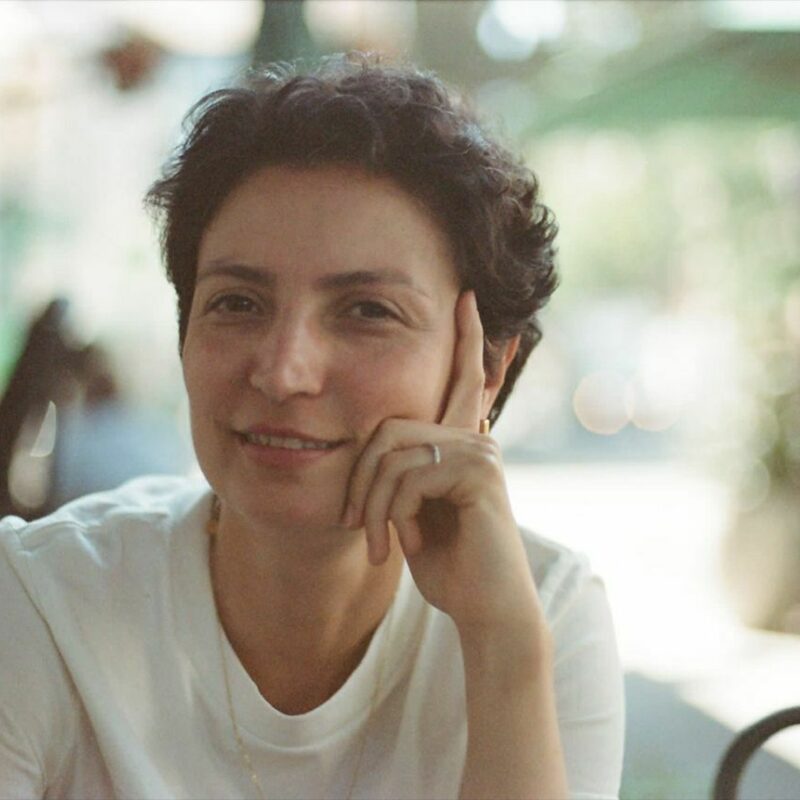
Sara Dolatabadi
Sara is an Iranian multimedia visual artist. Her life was transformed at a young age when the Islamic Revolution changed the political landscape in Iran and by the Iran-Iraq War, which she experienced through the eyes of a child. These memories influenced her practice as a visual artist and filmmaker, which can be seen as a meeting point between the microcosm of the personal and the macrocosm of the political. After receiving her BFA from Azad Art University (Tehran), she spent the next decade living and exhibiting in Tokyo, Paris and New York. While in New York, she obtained her MFA from Hunter College and, for her thesis, she directed and produced a short documentary, Summer Light, about her family. She currently resides in Libreville, Gabon.
Biographical notes provided by the film production team
Biographical notes provided by the film production team
You would like





